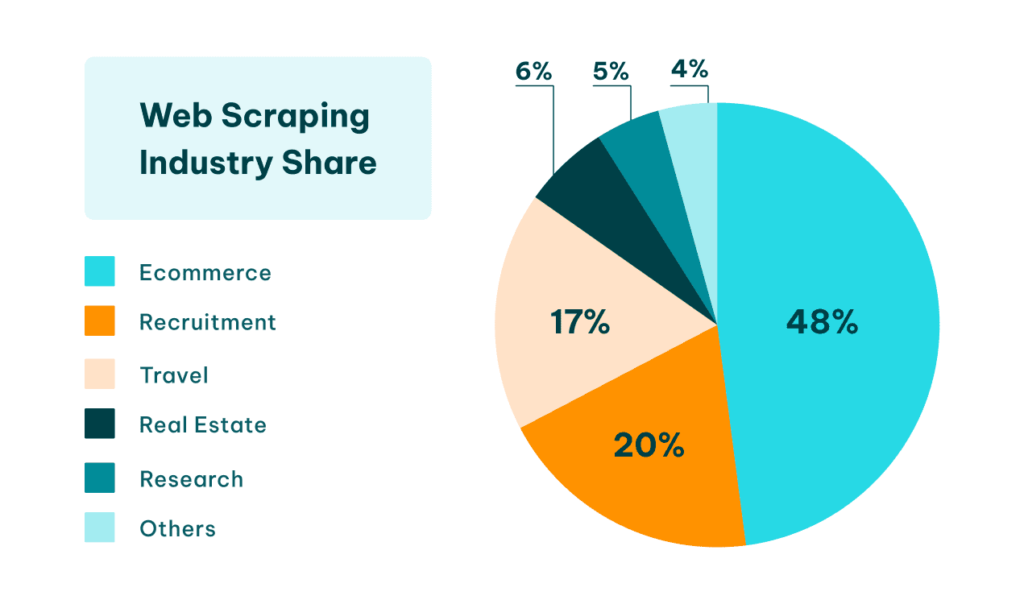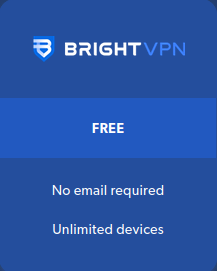Web scraping is a tool that provides organizations with access to vast amounts of data – which is critical for effective and rapid business decision-making.
According to a 2023 research report , the web-scraping market is expected to grow to almost $25 billion by 2030. This monumental rise illustrates the growing need for big data analytics and real-time data.
Interested in learning more?
This page explains everything a beginner should know to get started. We’ll cover the best programming languages and their pros and cons.
What Is Web Scraping?
The web scraping process involves extracting data from websites by automating the fetching and parsing of HTML pages. It involves using software or programming languages to collect information from web pages and transform them into a structured format for analysis.
Industries such as e-commerce, research, finance, and marketing commonly employ web scraping to collect data from websites—although its potential applications are even further widespread.
For example, Global App Testing uses web scraping as part of its testing process to ensure that web applications function correctly.

Top 6 Programming Languages For Web Scraping
So, without further ado, let’s dive into our top picks for web scraping programming languages:
Python
Python is the world’s most popular programming language, and it’s easy to see why—with significant ease of use, unrivaled community support, and the availability of many coding module libraries.
Not only that, but Python is also an ideal tool for complementary applications to web scraping, such as data analysis and machine learning. Check out this intro course in Python programming for data engineering to get an insight into the building blocks of Python.
| Advantages | Challenges |
|---|---|
| Large community support and a wealth of documentation available online. | As an interpreted language, Python code is not compiled until runtime. This makes it slower than other options on this list, especially when dealing with large datasets |
| Many libraries specifically designed for web scraping, such as Beautiful Soup and Scrapy. | Python can have issues with scalability if not implemented correctly. |
| Easy to learn and use. |
Java
Unlike Python, Java is a compiled programming language . In short, this makes it more efficient in terms of performance at the expense of lengthier, more complex code.
Designed to have as few implementation dependencies as possible, Java can be run as a platform in itself, garnering it a reputation for robustness and reliability. Typically used for web and mobile app development , its versatility warrants its inclusion on this list.
Large-scale enterprise applications often run on Java due to its high performance, as multi-threading capability allows for efficient scraping of large amounts of data.
| Advantages | Challenges |
|---|---|
| Offers a large number of libraries and tools, such as the Jsoup HTML parsing library. | Steep learning curve for beginners. |
| Built-in security features offer peace of mind against data vulnerabilities. | Requires significant memory and processing power. |
| Compatible with many operating systems. | Code can be verbose and complex. |
| Popular language for quality assurance procedure testing. |
JavaScript
Whereas Java is a general-purpose programming language, JavaScript is considered a “scripting language.” This makes it an ideal tool for front-end web development and for scraping data that relies heavily on client-side rendering.
| Advantages | Challenges |
|---|---|
| Node js web scraping is a popular choice for web scraping as it can interact with web pages directly. | Not all websites are built with JavaScript, which can limit its applicability. |
| Large community support and many resources available online, such as the Cheerio HTML parsing library. | Web pages with dynamic content can have complex HTML structures, presenting challenges for scraping real-time data. |
| Further, some websites use anti-scraping measures to prevent bots from accessing and collecting data. As these tools are often built with JavaScript, it can be difficult to get around these restrictions from within the same programming language. | |
| As an interpreted language, its execution can be slower than compiled languages like Java. |
Ruby
If you’re getting bogged down trying to learn Java, Ruby is an alternative general-purpose programming language that is often used for web development and web scraping.
| Advantages | Challenges |
|---|---|
| Many libraries specifically designed for web scraping, such as Nokogiri and Mechanize. | Less popular than other programming languages, which can limit community support and access to coding module libraries. |
| Easy to learn and use. | May not be as performant as compiled programming languages. |
| Simple and readable syntax. |
PHP
PHP is a server-side scripting language that, while not as popular as Python or JavaScript, can still be a good choice for certain types of projects.
For instance, with web scraping, PHP has built-in support for working with HTML and XML, which are two of the most common formats used for web pages. This makes it easy to parse and extract data without heavy reliance on external libraries or tools.
| Advantages | Challenges |
|---|---|
| Familiar syntax for developers who use the C programming language. | PHP can struggle with other data formats, such as JSON or CSV. |
| Many libraries specifically designed for web scraping, such as Simple HTML DOM and Goutte. | Limited support for multi-threading. |
| Slower execution speed as an interpreted language, which could hinder scraping large web pages. |
R
R is a statistical programming language that is often used for web scraping
Known for its ability to handle large datasets and its powerful visualization capabilities, it’s a strong contender for projects involving data analysis and machine learning . The visualization capabilities make it a useful language for presentations needed when following a process such as this MarkUp.io project approval process .
To avoid potential issues, such as scalability and code complexity, it’s important to follow a strict framework in the context of R’s advantages and challenges.
| Advantages | Challenges |
|---|---|
| Well-suited for data analysis and manipulation, making it an ideal choice for web scraping projects that require extensive data cleaning and processing. | R’s syntax can be idiosyncratic and unintuitive, making it less accessible than other languages. |
| R’s vast collection of packages and libraries offers numerous tools for data analysis and visualization, making it a versatile language for web scraping. | While R has some web scraping packages, they may not be as robust as those available in other languages, such as Python. |
For projects that involve data analysis and require multilingual data processing, R’s capabilities can be enhanced by leveraging ICT Translation services to handle language-specific content and ensure accurate data extraction across different languages.
Social media automation tools can be valuable additions to web scraping projects, especially for those that involve collecting data from social media platforms. These tools can automate tasks such as posting content, monitoring mentions, and analyzing engagement metrics. By integrating social media automation tools into the web scraping workflow, businesses can streamline their data collection process and gain valuable insights from social media data.
